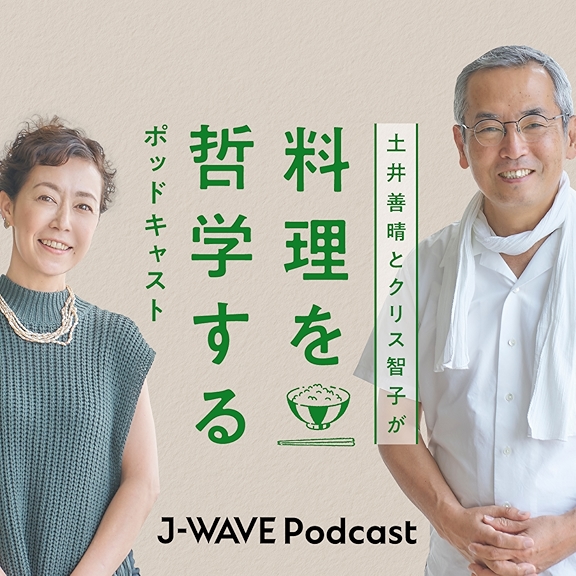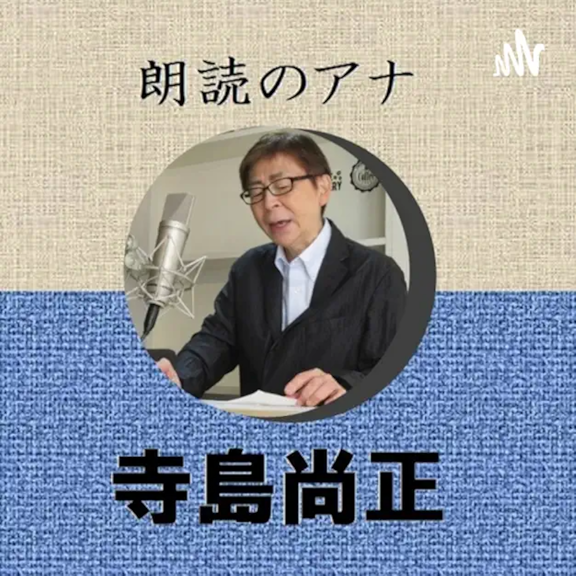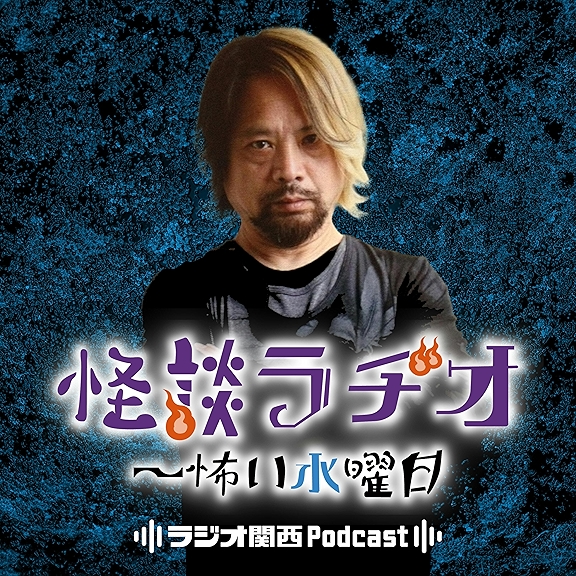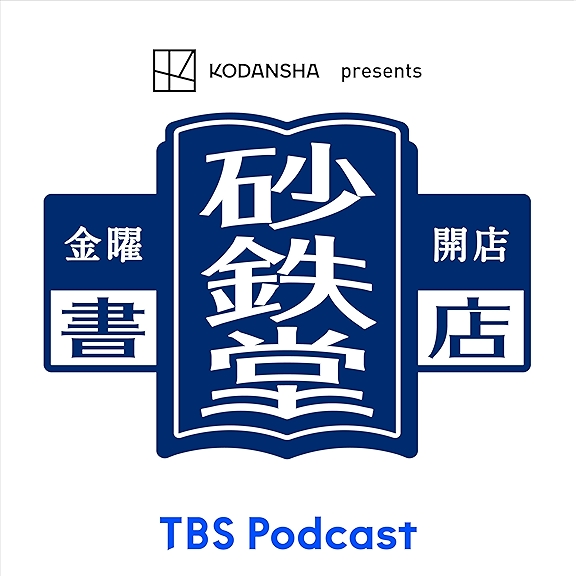
Jeff Le has had a career at the highest levels of public policy and politics at the state, federal and international levels. A recognized thought leader in political advocacy and representation, his analysis and opinion-writing have been featured in The New York Times, POLITICO Magazine, USA Today, The Washington Post, FOX News, The Hill, Roll Call, Forbes, and local and regional newspapers in 30 states.
=================
Welcome back to another episode of create a new tomorrow. I am your host, Ari Gronich. And today I have with me, Jeff Le, and I've been looking forward to having this conversation for a long time. Jeff is a two-time tour guide in Afghanistan. He's an ultra-marathoner. He's in the political arena. And that's the thing that I really want to talk to him about. But this is a guy who's recognized as a thought leader, as in political advocacy. He's been featured on Politico magazine, New York Times, USA Today, Washington Post, I mean, Fox News, all kinds of stuff. But Jeff, I'm gonna let you tell a little bit more about yourself. And where it is that, you know, you feel like your history has met your present, and is like pushing your future forward.
Jeff Le
2:36
Thanks for having me. Ari. Flattery will get you everywhere. So, thank you for that very warm introduction. You know, when I talk about my life, I really must take time to talk about my parents, first and foremost, not just because they love each other very much, and here I am. But also, because, you know, it's their bravery and passion that allows me to be an American today. Right. So, they were Vietnamese refugees after the fall of Saigon. 46 years ago.
3:25
Yeah, they were refugees in, you know, Thailand and the Philippines and escaped Vietnam and communism on a 32-foot raft. So, you know, when they made it to the United States in 1981, after six years, a year later, I was born. And that came with great rights, but also responsibilities. And growing up in Southern California. My parents had a gardening company. And it's important to highlight because it was my first job. My first job at eight years old was being the gardener's kid, and mowing lawns in the weekends. I learned two things about this. Number one, manual labor sucks. And education is really important, two people treat you based on what they think of you based on what you do. And so, understanding that we're only equal in concept, but maybe not in reality is an important lesson learn at a young age. I say all that because a lot of my professional and personal life was driven on this understanding. And I would break my life chapter into three chapters, and we can talk about each of them. Yeah, the first was a chapter in the international affairs arena, right? I got to work and travel and 85 countries around the world. There was so much to see and do, including, you know, what you referenced was, you know, my time in Afghanistan, you know, working in the international development, economic space, but also working in the human rights and advocacy, is base. And obviously, recent events in Afghanistan, are quite tragic and horrible. We'll talk about that. After that experience, it made me ask for mentally, what was I doing for the country back home? And so, the second chapter of my life was in politics, but you know, really with a stronger emphasis in state and local politics. I got to work for the governor of California specifically for five years. Jerry, yes, great way for Jerry Brown, Jerry Brown, the governor of California, so that the current governor of California, the previous governor of California, and which, for me was fascinating, because when Jerry Brown was governor, California, in the 70s, and early 80s, my parents arrived here. So it was so fascinating that their son could be advising the governor of California, the same governor, who was governor when they landed. So, think about that, from that, you know, the world is an interesting circle. And I was really proud of the work that I got to do in California, as you know, I mean, California, you know, covers some really interesting issues and technology and innovation.
Ari Gronich
5:53
California is crazy state.
Jeff Le
5:55
There's a lot of stuff to talk about, right? Fires, floods, you know, Silicon Valley, Hollywood, I mean, your amens, I mean, there's so much stuff that comes from there. And also what's not talked about the largest veteran community in the country, and 30 military installations that are sort of the backbone for our efforts in the Pacific, not talked about, but it's very important. Think about not just from a national security perspective, but also from a local economy perspective, having those installations there, those work I really got to work in really proud of. And now in this phase, I work in technology. And I'm really focused right now on housing, and really focused on reducing barriers for people to get to affordable safe housing, at a time where you have potentially millions of people being evicted, through no fault of their own. So, you know, for me, my goals have really been focused on trying to support empower the most marginalized at a time where the haves and have nots grow, what can we be doing to be smart and thoughtful about this, and not throw the baby with the bath wash.
Ari Gronich
7:09
Absolutely. So let's start to unpack some of this stuff a little bit. We're gonna go back, I actually I had a girlfriend. Long time ago, she had a tattoo on her butt that looked like a shipping label. It's said made in Vietnam. She had been a refugee who had escaped on a boat, like a rowboat, almost to Thailand. And so I find that interesting, because I know what it's like what it was like for her parents, who did the escaping, you know, and all of that what they faced and possibilities that they faced in order to escape a place. And where I'm going to draw the parallel in a minute is not necessarily to the Vietnam, but it's to Afghanistan, and all the refugees that are being forced, you know, to leave their home. And so, we'll draw that parallel as well. But what I want to get to at the first is, is that eight-year-old boy, who is being aware of the fact that your equality is not necessarily equal in the eyes of the people. So, I want to just kind of unpack this this one little bit for a second, let's talk about equality. And if there should even be anything called equality, and if so, what would it look like to you? So, let's just.
Jeff Le
8:49
Yeah, it's funny. So, under the law, there is supposed to be equality, right? In society, that's certainly not necessarily the case. There is something very important which is equity. Equity is important. Yes. Equanimity too. Those two concepts are very important. And so, I believe in equality of, there's an equality of opportunity and potential. Outcomes are different. Outcomes or outcomes. But we also must acknowledge that, there are some folks that are born on third base. There are some folks that are born on first base, and there are some folks that are selling hotdogs in the stands. It's it is different. And so, where you start does affect how you play the game. Right? Like if you're playing Monopoly and you got Boardwalk and Park Place to Start, it probably affects the way you probably can maneuverer. And I can tell you that my you know, my parents coming to the United States with nothing, I can't say we had Boardwalk and Park Place. I think we were just happy to have it. Have a token on the board. Right, we're happy to be here. And very much at least in an Asian American Pacific Islander angle, particularly Vietnamese American one, there's one very much filled with gratitude, a gratitude that we get to be here and that we get to chase, the thing that you and I have talked about, which is the American dream. The American Dream, though, isn't the dream for your parents, the American Dream is the possibilities for your children. That's what that is. Because, you know, very few, you know, these refugees you cited and Afghanistan, they're here are like being resettled. They are not going to be the direct beneficiaries of the American experience and the opportunities here; their kids will be. That is the American dream. The parents will have to live with the trauma of what they lost and what they'll never get back. And I know we discussed like, oh, how lucky these Afghans are to make it. The survivor's guilt. That's real. And they're separated from their family, their friends, their loved ones, everything they've ever known. So, they're always going to be knothole. So, I think there's this notion when we talk in society about like, oh, these refugees are taking advantage of things. Oh, they're just trying to find a way to, you know, further themselves. No, it's a last resort. It is a last resort. I mean, you think about what makes you happy? It's your community. It's the people around you. It's the sense that you're living in your skin.
Ari Gronich
11:27
You know, it’s funny to me, as you're talking, I had a thought, right? How many people do I know that I grew up with? Who have never left? The place that we grew up. Quite a few. And how difficult it is for somebody, just to willingly choose to go move somewhere, even just out of city. Not just out of state but out of city. You know, how many people do I know that have lived on the same block. You know, as their parents lived, and their grandparents lived the same block the same neighbourhoods. And when I hear somebody say, you know, these people are, they're being forced. What I want to see happen, right. When I hear you say, they'll never be whole, what I want to see happen is block parties. I want us to be, you know, the 50s, again, when we welcomed the world, right, onto our blocks into block parties, and we actually understand and listen and question like, What was that experience that you went through so that people can become whole?
Jeff Le
12:52
Yeah, I mean, you're totally right. I think this first off, I mean, if you look at the founding of America, America is a nation of immigrants and refugees, by the way, seeking refuge. In the only scenario of options last, right, if you look at the history, right? We focus so much on the Mayflower. There are many other May flowers for many other generations that we never talked about. It's not as luxurious, right? But the reality is that you, we have a culture that has a connection to cultures of many. And part of our strength, if you talk about from innovation, what makes America so powerful, is that we have these viewpoints, perspective skills and abilities from all around the world that come here, the best of the best. And then they use those talents and skills to create things that change the world. That creates that new tomorrow. Right? If you look at, you know, for example, let's just talk about, let's say the vaccine, for example, one of the things that people don't talk about who worked on the science of these vaccines, right? The research and development are on the backs of immigrants, doing the lab and bench science. So, you know, America benefits from those talents. And to your point, we have to recognize, it takes a whole of society to put people in the best position to succeed. They deserve to have an at bats, whether they strike out whether they get a single, I couldn't tell you.
Ari Gronich
14:23
So, hold on a second. Let's again, I'm I like to unpack some of this. I don't agree. With the premise that all people should have an equal starting ground. Right. And say that because I'm going to have a different brain than you have different set of skills than you. I'm going to have abilities that you will never have. You will have abilities that I will never have. And I disagree with the philosophy of any possibility of starting from an even ground. Now, here's, here's to say, if I had $100 million, okay, my brain would know who I need to put that with. So that I could get things moving forward, somebody else's brain that's given $100 million is going to spend it on junk that's not going to move anybody forward or anything forward, another person is going to spend that 100 million totally different, right? They're going to actually like maybe go to classes and learn and gain a skill and do good in the world. So, money, or resources or family, like, you might have a much larger family of resources than I have, my family might have more money. So, I don't believe that there's ever going to be a time possible in which we have an equal starting point or equanimity in relationships, it have equanimity and other things.
Jeff Le
16:09
Well, I think historically, that's right. I mean, again, like we talked about my family's history in the United States is 39 years. Right. So, the starting point is different versus, you know, someone that's been here since their family has been here since 1840s. Whether we can agree that's different, and totally agree that there's different skills and abilities. I think it's the case of how do we best put people in positions, you know, to fulfil their talents and potential? I agree with you. Not everyone is gonna be a starting pitcher. Not everyone is going to be even playing that sport. I totally agree. But I do think on the services part, like the thing you talked about for society, right? Having that openness to learn to understand that benefits everybody, and that benefits a stronger country as a whole.
Ari Gronich
17:01
Yeah. But also. I guess what I want to get to is, can we agree on a solution, right? That starts us from a place of maybe not equanimity. But at least not fight or flight. Right. So having somebody not necessarily have to worry about survival skills, survival instincts, surviving in general. And that's where I believe that if we could get away from the nervous system being triggered into this fight or flight response constantly, right? Meaning, we give people a way to have shelter, have clothes, have food, have the things that are necessary to sustain a life. That starting point, at least, is a starting point that will allow people to move in a quicker fashion, right? But to your point, at eight years old, you started a job. At seven years old, I started a job. Right. Mine was paper boy, and we did lawn mowing for like five bucks a lawn. Five bucks a lawn, I think back then. It was like three bucks a lawn. Right. And so, here's the other part of that. So, I'm going to be my own devil's advocate on this. The struggle is what made you who you are, right? That having to work that early, the being forced into an a non-equal position, right. Whereas somebody who's wealthy, whose kids are wealthy, they don't have to do anything, they don't have to learn, they don't have to think they don't have to, and they'll lose anything that they're given pretty darn quickly. So, there's, the dichotomy in my in my head, and we give people an equal footing ground as far as like survival. And will that have an opposite effect of taking the struggle away that makes people really forged in strong?
Jeff Le
19:32
Yeah, so I think you know, if you think of that, you know that Maslow's hierarchy, right. So, if you reduce the existential crises, then it can allow people to forge and foster in the other ways. I think there's three factors I think about first is, you know, just personality, right. I think there's the things that are born innately like you were talking about earlier. Alright, that is a factor. The second one, I think, is really helpful is exposure to other people? So, I mean, if you think about, you know, everyone remembers their third-grade teacher, right? Like there are people that influenced your life in a unique way. Even if it doesn't seem like it's going to be changing your life, those people are really important that you can't really control for right is the quality of your teacher or the quality of, you know, important figures in your life? The third is luck. And that, I think, to the point you, I think you imply it, I think that's fair. We live in a society that tells us that if you work hard to do these things, and you're successful, and that, alternatively, if you don't work hard, you will fail, and that's on you. So, when we see people fail, we just assume they didn't work hard enough. That might not necessarily be true. So, it's like that. That's an interesting premise here on, you know, this path dependency of like this dichotomy of if you do this, you do this, if you do this, this happens.
Ari Gronich
20:56
See, I don't I don't believe that hard work means anything. Right. I've seen housekeepers who, I mean, like, go 10 hours, 12 hours a day, they work their butts off, and they're making, you know, five bucks an hour, so to speak. 10 bucks, whatever the minimum nowadays. And I see CEOs who do absolutely nothing all day, right? Who make massive amounts of money. So, I don't believe that it's equal hard work for outcome, right? It's what you create as value. It's how much value you're providing to the world. Right? So, the value you provide to the world is gonna depend on your personality, as you said, it's going to depend on your skill set your, you know, your history, but all but mostly your mindset skill set, isn't that correct?
Jeff Le
21:57
It is and again, also, the degree of understanding systems. So, this is the other part like we were talking about, from, you know, the welcoming, I view, the welcoming is also an education on, how do you navigate? I think about my parents in the first two years, they were trying to figure out the DMV. I think everyone struggles, the DMV in some way. But imagine, you've come from this conflict, and you've been in transit. And now you're here and you have some sort of social network or you're working through, but then they're like, Oh, you have to get driver's license. Like, what is that? How does that work? So, there's also like, the quicker one can pick up the system. And as we talked about, I think really gifted creatives in this space, we'll learn the system, maximize what that looks like, and then break it. Right. I think that's where it gets really interesting. When you're starting in a position of the basics, you're not talking about breaking systems just yet, right? So, I think anything you can do to, again, expedite the ability to get people administratively in the points you talked about with this, you know, this hierarchy. That is helpful, because it will help for people's transition. to not feel like they don't belong here. Or at least you pretend you belong here.
Ari Gronich
23:22
So, belong here, an interesting phrase. So, I'm a firm believer that I should have the free ability to travel about the universe as I see fit. Right? I don't think I should have to have a passport. I don't think that there should be borders of any kind. I don't, you know, let me play. I'm gonna play this out. Like, yeah, well, your goal on here, I don't think there should be any limits. To me traveling around the globe. I look on a world view of Earth from space. And there aren't any of those, you know, barriers or lines that we've put onto the globe. Yes, you can see the Great Wall, but that still doesn't delineate the country, it only delineates one place. But the point is that this is earth, right? We all belong. If we live, if we exist, we belong on this earth. And so, stopping people from traveling, creating all these borders, what does that do psychologically? To somebody’s mind, right? I have a friend in London right now. And he had to get permission from the government to fly out of London to come to the US because of COVID right otherwise There would be a $7,000. Fine. Okay, in order to travel around the country around the globe around whatever, you had to get permission. I think that that's wrong. You've been to 85 countries. Right? You've travelled the world. You have seen, I'm sure more amazing things than 99% of all people. Because you've been to more places that, you know, most people have, like, like we said before, never lost their block, never got off their block, let alone travelled 85 countries. So, what do you think of belonging to the universe belonging to Earth, right, belonging in general? And how this whole issue can get alleviated? If we stop the nationalism thought?
Jeff Le
25:56
Yeah, yeah, um, I want to react really quickly about some insights. When you travel to different countries, I have two universal principles. And then we'll talk about the nationalism question that you raised. The first is in the travels, I got to experience and see with all the different people. Principle number one that I found is that regardless, where I went, who I met, how I met, what I saw, the people who had the least always gave the most, that's irrespective of nationality, irrespective of label, gender, you name it, I thought it was incredibly powerful. And from a humanist perspective, like just very inspiring, especially in places of the most hardship, I found people to be absolutely the most resilient, the most resistance to negativity, but also willing to sacrifice in a way that was in almost inhuman in some ways. Second principle, the more I travel, the more I miss home. And there's something about home that is important. And I struggled to understand what was it about home that it was, was it? Was it air conditioning? Was it my cereal in the morning? Was it the ease of driving on the right side of the road? What was it? And what I concluded was, it was a sense, where I didn't have to constantly translate in my head, a situation or scenario. And I think when you're what you're talking about, from a big picture perspective. When you talk about these barriers, or borders or labels, you're talking about haves and have nots. And you're talking about people that are deemed X and people that are deemed Y. And it's never done in a way that's done with rigor, right? It's just a label, right? It's based on what you talked about. It's based on nationality or passport, or it's based on a classification. It's not based on the individual, right, with rare exception, like your friend is a rare exception to get that exemption, for example, largely based by Guile in relationships.
Ari Gronich
28:07
But he’s spoken in front of parliament in the United Nations. So, he's been a guest on this show. I mean, that will get him. Well, we'll get him anything, Jeff.
Jeff Le
28:18
Besides a cosmic karma. But to your point, though, you know, I do think the nativism part is dangerous, because it irrationally puts people into intellectually lazy buckets. That is dangerous from not just from an everyday life perspective, but from a policymaking perspective. Right. And, you know, as you know, that the government, there might be well intended actions or options. But implementation is always the question. And then there's always exceptions to the rule. That is the question. And so, it can be really hard to right size solutions for the most people possible. Understanding that is far from perfect. But fundamentally, one of the issues that I see here is the policy makers that use rhetoric to score political points, mainly campaign dollars, to then advance their own personal interest without actually doing good for the others around them. That is, and maybe that's human nature. I don't know, we can debate that. I would argue it's not because I've seen the most giving people on planet Earth. So, it's hard. It's hard to see the difference. But unfortunately, in the system, we're in Ari. It's very much driven on. There's only so much pie, and I'm going to claim the pie for my people versus some of us believe that. Actually, you can go in the kitchen and make pie and we'd all be better off. So, it's an interesting debate.
Ari Gronich
29:55
Yeah, there's plenty of pie. I always say to somebody who thinks that there's a lack of anything in the universe. Say count handful of sand grain, just a handful. Just count them. See if you can, if you can't, you probably don't have a lack in the world, right? How about counting the hairs on your head? Can you count how many hairs are on your head or pores or on your skin? Right? We don't have a lack of for anything. In fact, we have an abundance of so much. Part of what I feel is like going to a restaurant where there's a menu, that is five pages versus a one page menu, right? One causes anxiety. The other cause, you know, creates ease. I only have these choices. Yeah, this is all that I can do. Right. Whereas the universe right now, is the smorgasbord, we have this thing called the internet that allows you to have a buffet of all you can eat of your own topic, right? And so like, for me, I'm the kind of person who gets a little piece of everybody's, right. And I want a little I want to try a little bit of everybody. So, I don't get stuck in my own thoughts.
Jeff Le
31:17
Well, also you don't get stuffed either. Right. So, you get to enjoy the taste without having to deal with that coma after so that's a smart strategy.
Ari Gronich
31:25
Right. But, that's how I like my people. You know, diverse. That's how I like my life is to have diversity to have levels.
Jeff Le
31:41
Go outside to see different and I would also say difference. Right. Because I think one of the killers that we were talking about with nativism, is people just all go in their corners, right? And that creates groupthink. And groupthink is a killer. That's the thing that we need to be breaking. And I'm really, I really admire the way you sort of look at life in that you want to be exposed to as many things as possible. Not as little.
Ari Gronich
32:06
Cancel Culture sucks. Let's just get it out. Like anybody who's cancelling anybody. You should be ashamed of yourself. Really, like down and dirty. You should be ashamed of yourself, cancelling people cancelling things that you have no idea about who they are, you never asked them a deep question, or found out why and you're cancelling them. I find it disgusting. It's actually like, I find that that whole concept, completely disgusting. Anybody who's an American like it's going against the Constitution, which is free speech, the idea of free speech, right? So, let's just like I'm just getting that out of my system. At the onset, right? Cancel culture sucks. So that being said, what's the solution? So, I like solutions. I'm all about solutions. These days, we've talked a lot about problems. Yeah. I want to get to some solutions with you. Okay. So, let's go to Afghanistan, for instance, and what's going on there. You had two tours. And you kind of have an insider's perspective. So, let's get perspective on that location.
Jeff Le
33:27
Yeah. I mean, obviously, Afghanistan has been in the news. What's fascinating about Afghanistan, is it's one of the most complex histories on planet Earth. I mean, just where it's located in the world is one of the busier more complex neighbourhoods, you can you just take a look around the neighbourhoods, it's busy. And what I learned from the years I was there, that one, one really important lesson, which is super helpful for both empathy, but also humility, is the longer you're in a place, the less you understand. And I think that's the case in many countries in many parts of the world.
Ari Gronich
34:04
Unpack that. Explain that.
Jeff Le
34:05
So, there's layers of complexity. And let's say, you know, you want to understand the United States. So, you stay here for a semester, or you stay here for a couple weeks. All right, you have a good handle. You stay here five years, what did you really learn? Oh, my goodness, there is way more to unpack than one thought. That's very much the case in a foreign country that is in a conflict, an active conflict zone, and you're trying to figure out, how do we promote better relations? How do we, you know, ensure more prosperity and economic development? How do we build things? And also, more importantly, how do we get rid of the bad guys? Which by the way, there's that construct of good guys bad guys, which we can talk about that. The great part about that experience two things one, I got to be outside of the Capital for lots of parts of it. And that's helpful because the country isn't just The State Capital or the nation’s capital, just like if you look at the United States right now, you know, there's Washington and there's everything else. Everything else is quite different than Washington very much as hasten Kabul and everywhere else and understanding that the local differences matter. But more importantly, the local sensitivities, the local people, local constructs are different. That helps you get a sense of what's possible. And the only way I could do anything Ari was with hiring local people who were invested in trying to promote a better
Ari Gronich
35:33
Hold on one second, I'm gonna pause you.
Ari Gronich
35:57
Jeff, I'll be right back. I just got to do something real quick.
Jeff Le
Yeah, of course.
Ari Gronich
36:40
Sorry about that, my ex is coming to pick up stuff for my son.
Jeff Le
36:52
Understand, understand. That's complexity.
Ari Gronich
36:56
Yes. All right. So where were we?
Jeff Le
37:01
We were talking about FSM. Yeah. I guess, to say, if you want to be successful, in a country, like that, you need to have local buy in. And you need to have local staff who are committed to building a very different country. That's not an easy sell. But when you do have folks who are interested in stronger prosperity or having closer Western alignments of the world, when they're all in, you're all in, here's the thing. They make a choice. That choice isn't just a job decision. That's a life and death decision. That's the difference Ari. So, the choose to support the Americans, like just how my parents supported the Americans. If you don't win, you lose. And that's what unfortunately, has been the case here in the last six weeks following the withdrawal of American troops from Afghanistan. And I think we can agree 20 years is a very long time. And we can agree that 20 years, what did that give us? Those are fair, valid, thoughtful, important questions that we should and absolutely need to learn from. But speaking at a human level, knowing that the vast majority of my local staff, people that made sure I was okay, made sure our troops were okay. That they're not going to be okay, now. That is crushing to me. Because they're the unlucky ones, the ones that won't make it to United States, and 46 years ago, my parents were the Afghans. And so, I feel a tremendous sense of both heartbreak, guilt, and shame, knowing that we couldn't do everything we really could do. You'll hear Ari, people say that, oh, we did the best we could. It could have been way worse, you know, right. And listen, I would love to go down the multiverse to determine the other scenarios I'd love to. But the reality is in the universe you and I live in today. There are family members of my former staff that have already been killed, or people are hiding in a hole in the ground or deciding which land border are they going to cross over? That's the questions right now. And that’s a difficult thing to accept for me. Putting aside the strategic questions, which we can talk about, of course, that's that that is well deserving, but just on a human level. It's something I haven't been able to shake. I don't sleep very well, to be honest with you. I tried to do the best I could and continue to try to support visa applications, whatever the case might be through our process, which is a 14-step process. And it's hard to know that even the greatest most powerful country in the history of the world, still can't get the stuff, right.
Ari Gronich
0:02
So, I'm gonna unpack a little bit because the humanity part, right, so let's just kind of talk about that in a way, that is more of a strategic thing. Right? So, we're in a country 20 years.
What were we doing there? And what should we have been doing there? Right? Those are the two questions that I asked like, what were you doing now? And what could we have been doing differently? Or better or whatever? Because the way I see it, and I say it on the show all the time is we made this shit up, we could do better. So, there's not a single thing on the planet that we've created as humans, that can't be improved upon or optimized more. So, I try to take out the judgment. Just put in. Okay, what are the facts? No, what did we do? And what should we have been doing to be more optimized? And then the last question on that is, people who are extremists? Are they ever going to not be extremists? And if so, what are the things that we're doing? To cause them to not be extreme?
Jeff Le
1:16
Hmm, yeah. The $64,000 question, among other things, actually, we'll call it $2 trillion, because that's how much it costs $2 trillion question. So, the first question of what were we doing there? I mean, the whole point of being there was to ensure that terrorists or extremism would not be able to attack the United States, homeland, and soil, that was the original cause and effect, right, 20th anniversary of 911 just happened, the whole idea is we were going to go to these places of safe harbour or against the bad guys, we're gonna kill all of them. And then they'll never mess with us again. That was the idea. So that's like phase one, right? Well, here's the thing. Phase two became, oh, well, okay, that's done now what? And you had two challenges. This, there was sort of a school of thought of, oh, we should build democratic institutions and shared economic values and alignments. In a place where you have no idea of understanding. That's a challenge. And then the second piece of that was, oh, by the way, we'll do this, we'll review it every year. So, it's not 20-year war, it's 21 year worse. That's how I viewed it. And guess what, when you have the handoff from one to another, it takes time to it's like Groundhog Day, right. And that's what unfortunately happened. And regardless of what the troop numbers were, or the casualties or the strategic value of x or y, it just did not change the fact that there was not a clear NorthStar of how we were going to do what we're going to do. And what was success. So, the second point, right, what can we've done better? What is success? Number one defining success, so you can meet success and move on, fundamentally did not happen. And that is shocking, because you would think the politicians would understand
Ari Gronich
3:09
So there was no end goal.
Jeff Le
3:12
Not sighted with consensus.
Ari Gronich
3:16
Okay, no analytic that we could measure that says that is success. Now it doesn't seem like military intelligence to me.
Jeff Le
3:26
No, I mean, listen, if success have superiority in the air on the ground, we're going to do that. That's not the issue. The issue is after all the bombs and toys that is the issue. Listen no one's gonna doubt American military superiority?
Ari Gronich
3:42
Oh, what I'm saying there was no target. There was no goal, you're shooting a gun at nothing.
Jeff Le
3:48
How do you shoot and this is the challenge. How do you shoot a gun at ideas? How do you shoot a gun at better governance? Right. This is a fundamental challenge that we're talking about, about the Maslow's hierarchy earlier. You know, what people really wanted. They wanted things to function. And the Afghan government though, the United States and Western Allies were supporting, we're not doing the basics. Some of that is incompetence. Some of that is massive corruption. Some of that is a lack of capacity. Some of it was lack of will. All of those things are a recipe for people saying, you know, what, maybe these Taliban people aren't so bad. So, the point you brought up very thoughtfully. Extremism. So, is it extremism or just wanting the basics? What is it and there are some folks like, you know, the horrible people that murdered our troops in the evacuation. Those folks are definitely there's nothing you can give them or sell them. Right. That's, that's a that's a very different premise. That's, unfortunately something that usually ends with a bullet. But for the vast majority Have the locals and communities even to help most of Taliban forces are probably thinking, You know what, I just want to have a place where I can raise my family, I can have money come in, and I can do the basics. And that basis would be ensuring that my kids a better life than me, kind of sounds like, you know, what my parents were thinking about when they came here. So this inability to deliver was going to be the downfall. And in 20 years, they couldn't deliver, therefore, we couldn't deliver. And without any metric for success, we were destined for failure. That's what happened.
Ari Gronich
5:37
Okay. So, I don't know that I agree that people just want to survive and have the basics, like the Taliban, for instance. Right? If they were to do absolutely nothing right now. Not hurt anybody, not assume their control. They would probably have the basics. The thing people want control, and that control gives them a sense of safety. And that sense of safety, just like any gang on any block in South Central, or, you know, or anywhere else, Chicago doesn't matter. Any gang, any mob, any mafia, any family of people that choose a certain way of living to be a violent way of living. It's not just about survival. It's, it's about control.
Jeff Le
6:36
Well,




















